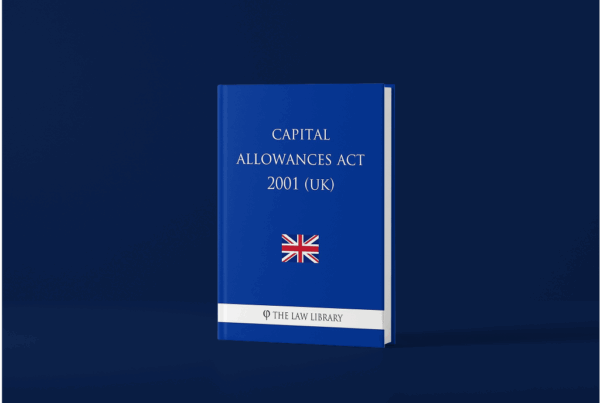Many commercial property owners are eligible for significant tax relief through an embedded Capital Allowance claim.
Identifying these previously unclaimed Allowances requires a specialist team and an intricate knowledge of the legislation.
There are many ways to purchase a property and each has their own positives and negatives where Tax is concerned. Below is a short list of some of the more common ownership types, but is by no means exhaustive. Our team are specialists in this area and would be happy to discuss further the implications of any ownership structures.
Limited Company
Owning Commercial Property in a Limited Company is common. Tax relief is available at the current Corporation Tax rate of 19%. Once a survey has been completed on the property and our Tax Specialists have completed their report, an amended CT600 is submitted to HMRC including details of the previously unclaimed Capital Allowances.
HMRC normally process our claims within 28 days and once they have reviewed the submission they will provide a refund of previous tax paid where this is due.
Capital Allowance claims provide the opportunity for Limited Companies to make adjustments that won’t impact upon the profitability, but will allow for the reduction of the overall tax liability of the company, a lucrative and beneficial investment.
In the event a Limited Company chooses to sell or purchase a property, there are significant options for both buyers and sellers. In the event you are selling your commercial properties, allowances must be claimed in advance as they cannot be claimed retrospectively.
Public Listed Company
Publicly listed companies that own commercial property are eligible for significant tax relief through an embedded Capital Allowance claim.
Whilst tax relief is at the prevailing rate of 19%, our tax specialists, through the use of an amended CT600 can provide commercial property owners with significant tax relief and often, sizable tax rebates.
The caveat is that a limited company has up until the first anniversary of the Corporate Tax Return filing date to make these amendments and receive the tax relief within this financial year.
This provides the opportunity for publicly listed companies to make tax adjustments that won’t impact upon the profitability but will allow for the allowances identified to reduce the overall tax liability of the company, a lucrative and beneficial investment.
In the event a privately listed company is selling or purchasing a property, there are significant options for both a buyers and sellers. In the event you are selling your commercial properties, allowances must be claimed in advance as they cannot be claimed retrospectively.
Individual
If you own a commercial property as an individual, you are eligible for significant tax relief and more often than not, initial cash refunds through an embedded Capital Allowance claim.
Whilst benefits can depend on your marginal tax rate, an amended Self-Assessment Tax Return, combined with specialist input from expert Surveyors and Tax Specialists, can generate your property significant tax relief. If the Self-Assessment Tax return is within 12 months from the filing date, an initial cash refund will be available.
Individuals have the added benefit of utilising losses produced by capital allowances. Property losses cannot typically be used to offset against other income, however through sideways relief, losses created by Capital Allowances can be allocated against other income to reduce your overall tax liability.
Whilst there is no doubt that claiming Capital Allowances are a beneficial, risk-free exercise, there is often some confusion around capital allowances as an asset: Capital allowances have no impact upon Capital Gains Tax as though allowances have a benefit to you as an individual, they do not change the price of the property.
Capital allowances will have a positive impact on your tax position, often instantly and if not, for years to come.
Married Couples
If you own a commercial property as part of a married couple, you will both be eligible for significant tax relief and more often than not, initial cash refunds through an embedded Capital Allowance claim.
Whilst benefits will depend on both your marginal tax rates, amended Self-Assessment Tax Returns from both parties, combined with specialist input from expert Surveyors and Tax Specialists, can generate significant tax relief for the owned property. If the Self-Assessment Tax returns are within 12 months from the filing date, an initial cash refund will be available.
Married couples have the added benefit of utilising losses produced by capital allowances. Property losses cannot typically be used to offset against other income, however through sideways relief, losses created by Capital Allowances can be allocated against other income to reduce your overall tax liability.
Whilst there is no doubt that claiming Capital Allowances are a beneficial, risk-free exercise, there is often some confusion around capital allowances as an asset: Capital allowances have no impact upon Capital Gains Tax as though allowances have a benefit to you as an individual, they do not change the price of the property.
Capital allowances will have a positive impact on both tax position, often instantly and if not, in the years to come.
Partnership
Where a business is carried on in partnership, capital allowances are calculated and claimed at partnership level on the partnership return.
This is the case whether the assets are partnership property or are owned by one or more of the partners but used in the partnership’s business.
Whilst there is no doubt that claiming Capital Allowances are a beneficial, risk-free exercise, there is often some confusion around capital allowances as an asset: Capital allowances have no impact upon Capital Gains Tax as though allowances have a benefit to you as a partnership, they do not change or impact upon the price of the property.
Capital allowances are computed as part of the income tax or corporation tax adjustments to arrive at taxable profits for income tax purposes or corporation tax purposes and are, therefore, deducted before profits are allocated to the partners with the result that the profits allocated to partners are net of capital allowance
Pension Fund (SIPP)
Unfortunately, if your property is held within a Pension Fund (SIPP), you are unable to claim embedded Capital Allowances.
Trust
Whilst you can claim capital allowances on a commercial property held within a trust, the benefits largely depend on the tax rate that the trust is paying.
In the event you own a property within a trust, please contact HMA Tax to best assist you in making a compliant embedded Capital allowance claim.



